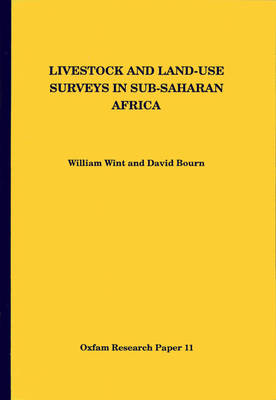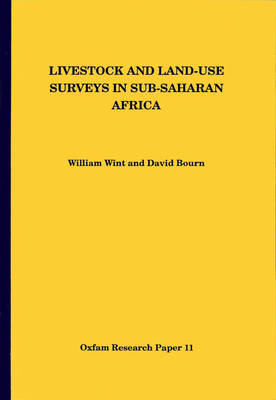
- Afhalen na 1 uur in een winkel met voorraad
- Gratis thuislevering in België vanaf € 30
- Ruim aanbod met 7 miljoen producten
- Afhalen na 1 uur in een winkel met voorraad
- Gratis thuislevering in België vanaf € 30
- Ruim aanbod met 7 miljoen producten
Zoeken
Omschrijving
Oxfam carries out original research on various aspects of its overseas programme, as part of a constant monitoring process, and in an effort to gain greater understanding of development programmes and practice. Although primarily a tool for institutional learning, some of the resulting reports are of wider interest. As part of its commitment to sharing experience of good practice, Oxfam publishes those reports which describe innovative research projects, evaluate particularly interesting projects or programmes, or are the proceedings of workshops or seminars. The extensive savannah regions of Africa are in a state of transition. There are increasing pressures on land use, as a result of the conflicting interests of farmers, pastoralists, foresters and conservationists. Although arid rangelands have been progressively degraded by drought and over-exploitation, by incorporating local communities' expertise, natural resource management may be improved; more information is needed on the methods used by local communities. This paper reports on the preliminary analysis of data from extensive low-level aerial surveys and ground studies of livestock and land use in Mali, Niger, Nigeria, Sudan and Chad. The findings suggest unexpected and highly significant correlations between livestock distribution, environmental factors and human activity, which could have far reaching implications for development initiatives in the region.
Specificaties
Betrokkenen
- Auteur(s):
- Uitgeverij:
Inhoud
- Aantal bladzijden:
- 44
- Taal:
- Engels
- Reeks:
Eigenschappen
- Productcode (EAN):
- 9780855982843
- Verschijningsdatum:
- 15/12/1994
- Uitvoering:
- Met losse bladen
- Formaat:
- Losbladig - bladen en ordner
- Afmetingen:
- 210 mm x 297 mm
- Gewicht:
- 127 g

Alleen bij Standaard Boekhandel
+ 96 punten op je klantenkaart van Standaard Boekhandel
Beoordelingen
We publiceren alleen reviews die voldoen aan de voorwaarden voor reviews. Bekijk onze voorwaarden voor reviews.








